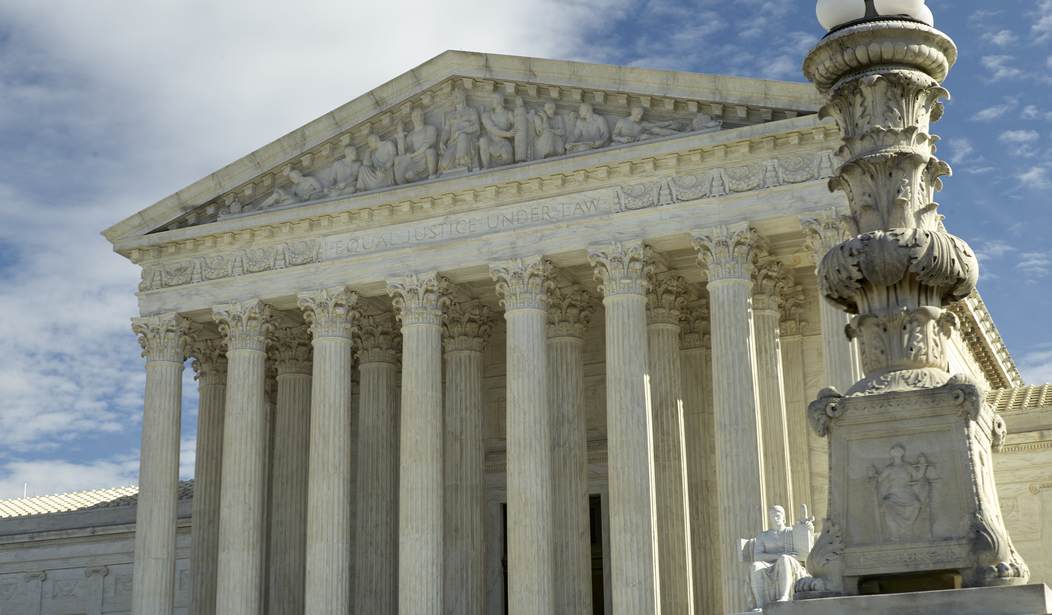It doesn’t exactly set a precedent, but it might demonstrate that the Supreme Court learned a lesson. In June, the court allowed an eviction moratorium to remain in place even though the CDC had no authority to impose it, reasoning that it would expire in 32 days anyway. That argument didn’t fly last night with New York’s eviction moratorium, as the court struck down a state rule that would have expired at the end of the month.
The rule allowed tenants to self-certify as suffering economic hardship to stop paying rent. That’s nonsense, the court ruled in a 6-3 split:
The high court’s order on Thursday blocks part of New York’s COVID Emergency Eviction and Foreclosure Prevention Act, passed last year, that allows tenants to self-certify that they’re experiencing economic hardship because of the pandemic. If they do so, eviction proceedings are effectively shut down till the end of this month.
The court’s majority signaled that the New York law was likely unconstitutional because landlords had no way to challenge a tenant’s claim to have been hard hit by the pandemic.
“If a tenant self-certifies financial hardship, [the law] generally precludes a landlord from contesting that certification and denies the landlord a hearing,” the high court’s order said. “This scheme violates the Court’s longstanding teaching that ordinarily ‘no man can be a judge in his own case’ consistent with the Due Process Clause.”
Stephen Breyer led the three liberal justices in a dissent, arguing that the rule only had another three weeks left to be in force:
“The challenged law will expire in less than three weeks. Under these circumstances, such drastic relief would only be appropriate if ‘the legal rights at issue [we]re indisputably clear and, even then, sparingly and only in the most critical and exigent circumstances,’” Breyer wrote, quoting an opinion from Chief Justice John Roberts in a ruling last year on a challenge to limits that California churches were facing because of Covid-19. “I conclude that this strict standard is not met here.”
Gee, only three weeks, eh? And what would have prevented New York from extending this rule further? That’s precisely what the Biden administration did with its eviction moratorium after Brett Kavanaugh let the CDC off the hook for its usurpation of Congress in extending the moratorium. I’d guess that the “hey, it’s just another three weeks” argument was met with considerable scorn in the conference call after Joe Biden’s defiance of the court.
For that reason, the justices probably didn’t think much of Breyer’s other argument:
And, he said, the court in weighing government responses to the pandemic should defer to elected officials.
The legislature is “responsible for responding to a grave and unpredictable public health crisis,” Breyer wrote. He added: “The legislature does not enjoy unlimited discretion in formulating that response, but in this case I would not second-guess politically accountable officials’ determination of how best to guard and protect the people of New York.”
Ahem. This “crisis” has gone on for well over a year now, and the public-health aspect of the housing question has become a chronic rather than acute issue. At what point does constitutional order return? Surely it can’t be suspended simply on any declaration of emergency by an executive. That would be as anti-constitutional and anti-rule of law as, say, allowing renters to self-certify as hardship cases to avoid paying rent and getting evicted. Come on, man.
As I noted, this isn’t going to set much of a precedent, but it does appear to have laid down a marker. The Supreme Court isn’t going to let a looming expiration date become an argument for a punt any longer. It shouldn’t have allowed it in the first place, but at least six justices learned the proper lesson from it.
Update: Paul Mirengoff writes this “deserved to be laughed out of court,” and marvels that there was any dissent at all:
The notion that tenants can live rent free simply by asserting financial hardship, without the need to demonstrate it if the landlord contests the assertion, deserved to be laughed out of court. That’s basically what the Court did in its very brief order.
The order states that New York’s “scheme violates the Court’s longstanding teaching that ordinarily ‘no man can be a judge in his own case’ consistent with the Due Process Clause.” That’s obvious.
Yet, the Court’s three left-liberals dissented. Justice Breyer’s dissent emphasized that the provision in question is set to expire in three weeks. So I guess it’s okay with the three left-libs to cheat landlords out of rent if the statute that permits this will expire soon — even when, as here, the cheating has already been permitted for the better part of a year.
I wonder how far into the future the self-certifiers could deprive landlords of their rent before Breyer and his crew would be willing to strike down this provision. A lot more than three weeks, I suspect.
I’d bet that the other six justices suspected as much too.








Join the conversation as a VIP Member